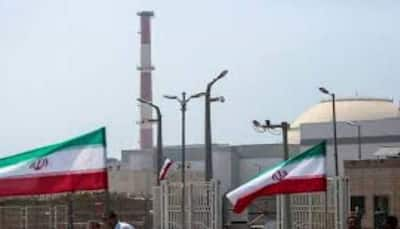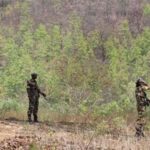New Delhi: At the heart of one of the most dangerous standoffs in the Middle East lies Iran’s nuclear programme – a subject that has consumed American and Israeli leaders for more than two decades. For Washington, it is a high-stakes test of diplomacy, deterrence and regional power balance. Israel considers it a matter of survival.
The obsession began long before headlines declared centrifuges spinning in Natanz or uranium being enriched to near-weapons grade. It dates back to 2002, when secret Iranian nuclear facilities came to light.
A signatory of the Nuclear Non-Proliferation Treaty (NPT), Iran was accused of violating its commitments. Under the NPT, countries can use nuclear technology for peaceful purposes (medicine, energy and agriculture) but are barred from making nuclear weapons. Iran insisted then, and insists now, that its programme is civilian. Yet few in the West believe that.
When the Joint Comprehensive Plan of Action (JCPOA) was signed in 2015 between Iran and world powers, including the United States, it was seen as a breakthrough. Iran agreed to limit its uranium stockpile, cap its enrichment at 3.67% and allow sweeping inspections by the International Atomic Energy Agency (IAEA). In return, crippling economic sanctions were lifted – offering Tehran much-needed relief. But that optimism did not last.
In 2018, then-president Donald Trump scrapped the deal – calling it weak and flawed. He reinstated sanctions, hoping that economic pain would force Iran into accepting tighter restrictions – including a permanent halt to enrichment and limits on its missile programme. But that did not happen. Instead, Iran scaled back its own commitments and restarted enrichment at alarming levels.
By early 2025, Iran had reportedly amassed around 275kg of uranium enriched to 60% purity – just short of weapons-grade material. The United States warned it could reach the 90% threshold within a week and possibly build a crude nuclear device within six months.
For Israel, these numbers are not theoretical. They represent a red line. Iran does not recognise Israel’s right to exist. And while Israel has never officially acknowledged its own nuclear arsenal, it has made it clear that it will not allow a hostile power in the region to acquire nuclear weapons. Iran, in Israel’s eyes, is not just a rival; it is an existential threat.
So the stakes are enormous. In June 2025, Israel took direct action. It targeted Iranian nuclear and military facilities, and in the process, killed six top nuclear scientists – men who had helped design reactors, enrich uranium and train a generation of physicists. The message was dismantle your programme or we will dismantle it for you.
Backchannel talks have resumed in Muscat, but mistrust runs deep. Iranian officials have said they are open to a fair and balanced agreement but only if the military option is off the table. That is unlikely to sit well with either the United States or Israel. Trump’s team has stated they want full dismantlement – enrichment, weaponisation and missile development all gone. And Israel’s prime minister has gone further, demanding physical destruction of Iran’s facilities under American supervision. Anything short of that, he believes, would be a diplomatic illusion.
This is why diplomacy has proven so fragile. The United States wants to stop a bomb. Israel wants to stop even the possibility of one. Meanwhile, Iran wants relief from sanctions without surrendering its strategic ambitions. The JCPOA was once thought to bridge that divide. Today, it lies in tatters, and with it, the illusion that diplomacy alone might be enough.
Military action remains a terrifying possibility. Iran’s nuclear sites are buried deep underground, making them difficult to destroy. The United States has the bunker-busting bombs needed for such an operation; Israel does not. Any strike would risk a wider war – retaliation from Iran, missile attacks on Israel and violence across the Gulf. Even U.S. allies hosting American bases, like Qatar, may hesitate to support a military offensive.
Yet the obsession persists. Because if Iran crosses the threshold, if it enriches to weapons-grade, builds a bomb and tests the West’s will, everything changes. The fragile balance in the Middle East could collapse. Nuclear proliferation might follow. And the shadow war that has simmered for years could erupt into open confrontation.
This is not only about uranium and centrifuges. It is about power, fear and survival. And that is why, for both the United States and Israel, the Iranian nuclear programme is not a threat. It is an obsession and a line they are willing to fight to hold.
Stay informed on all the , real-time updates, and follow all the important headlines in and on Zee News.








